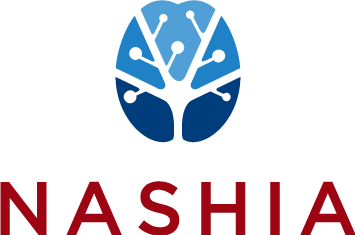Anastasia Edmonston, MS, CRC
Trainer and Consultant
With more than 30 years of experience in the field of rehabilitation services for individuals with traumatic and acquired brain injuries, Anastasia has worked as a clinician, program coordinator, vocational rehabilitation counselor and federal grant coordinator. Over the past 15 years, she has incorporated her clinical expertise and passion for promoting change and raising awareness into developing and delivering workshops, webinars and training to a variety of audiences that focus on how to identify and appropriately serve individuals who are living with brain injury.
Having completed a virtual training and facilitation course, Anastasia is a versatile trainer, able to reach a wide range of audiences. She has presented to professionals working in the behavioral health, aging, vocational rehabilitation, and intellectual disabilities services field as well as public safety and law enforcement, among others. Anastasia also trains and consults with her colleagues in the brain injury community regarding the link between brain injury, behavioral health and addiction to enhance their ability to provide comprehensive services and supports.
Brain Injury Training: Brain injury trainings are designed for the audience and setting, ranging from an hour-long conference workshop to an all-day training that includes immersive exercises, videos and introduction and opportunity to practice administering the Ohio Valley University Traumatic Brain Injury Identification Screening Tool (OSU TBI-ID). Regardless of session length the consistent message to all audiences that to be truly survivor-oriented; professionals, providers and systems need to be brain injury informed and to approach assessment, treatment and services through a holistic lens. Below are examples of brain injury related topics and targeted audience.
• Traumatic Brain Injury, Addiction and Acquired Brain Injury (secondary to opioid overdose), overview and strategies for brain injury professionals
• Traumatic Brain Injury Overview for Behavioral Health Professionals
• Aging and Traumatic Brain Injury, Overview of Common Cognitive, Behavioral and Physical Challenges
• Vocational Issues after Traumatic Brain Injury
• “Unmasking Traumatic Brain Injury”: Understanding the Implications of Hidden TBI (and Acquired Brain Injury) in the Vocational Process
• TBI and Transition Age Youth
• Crisis Intervention Team Training: Incorporating Brain Injury Awareness into CIT classes for Law Enforcement Professionals
• Judicial and Criminal Justice Hot Topic: Why understanding the consequences of brain injury is critical to judges, parole and probation, and problem-solving court personal
• What American with Disabilities Act (ADA) Coordinators Need to Know About Employees with a History of Traumatic Brain Injury and How to Support Them
• Traumatic Brain Injury and Service Members: Understanding the Impact of Brain Injury in Those Who Have Served
• The Very Vulnerable, Traumatic Brain Injury Among the Homeless and the Incarcerated
• TBI Overview and Screening for Behavioral Health Professionals with a focus on Substance Abuse and Domestic Violence
• TBI as a Developmental Disability: Overview for professionals and direct care staff working in services for individuals with intellectual and cognitive disabilities

